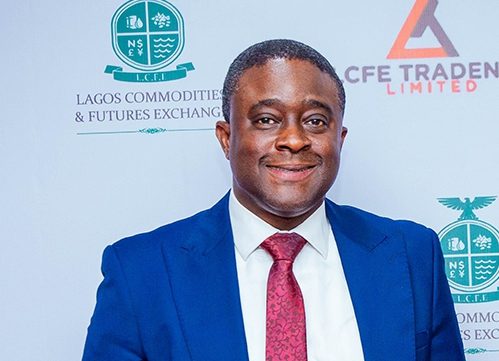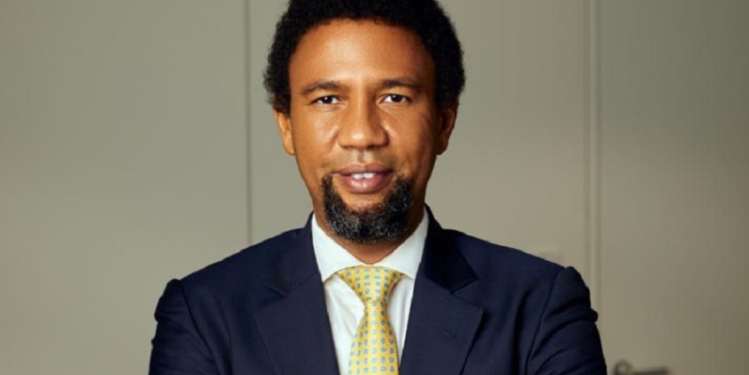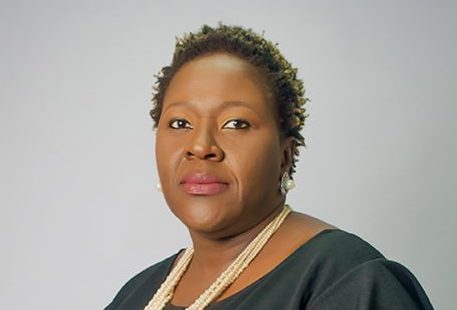Mr Akin Akeredolu-Ale is the Managing Director of Lagos Commodities and Futures Exchange LFCE. He is also an expert in portfolio management, business planning, risk management, and corporate finance.
In this interview with Nairametrics, he speaks on issues bothering commodity exchanges, capital markets and other challenges in the Nigerian economy.
Enjoy the conversation.
NAIRAMETRICS: What is your outlook for the Nigerian economy in 2023, especially with regard to commodity exchanges?
Akin Akeredolu-Ale: The global economy has not recovered from the shock over the past year and is currently at an inflexion point. The Central banks of most nations had to step up aggressively to tackle the rising inflation.
According to the World Bank, Nigerian economic growth will decelerate, averaging 3.2% in 2023 due to persistently low oil production, rising insecurity, and failure to address socioeconomic problems of high unemployment and rising inequality. While the recovery from the pandemic shock is incomplete, higher inflation, lingering effects of aggressive monetary policy, the deteriorated labour market, and weak confidence will continue to weigh on growth in private consumption.
Growth will only be supported mainly by the rebound in private consumption prompted mostly by accommodative monetary policy as inflationary pressures hopefully subside.
Let’s look at Gold. Gold is both a consumer good and an investible asset. As such, its price movement is driven by the interaction of four key factors: Economic expansion – positive for consumption, high-Interest Rate – positive for investment, opportunity cost – negative for investment and momentum –contingent on price and positioning
These factors, in turn, are influenced by key economic variables such as GDP, inflation, interest rates, exchange rates, and the behaviour of competing assets
The price of gold unfortunately is largely influenced by the US Dollar, irrespective of source or location while Dollar is also influenced by the uncertain macroeconomic environment, with concerns about high inflation, the prospect of recession, slowing growth in China and the impact of the Russia-Ukraine war.
Unfortunately, Nigeria isn’t a force to reckon with in the global gold market, but we are not lacking the precious metal. We have a thriving underground gold economy that if regulated, could unlock us as the gold market Centre of Africa. Despite the mostly informal structure of the gold market, Nigeria has one of the largest economies and populations and is a top contender for the largest emerging market for luxury goods in Africa.
The outlook for the Nigeria Commodities Ecosystem has hope at the Horizon, using the Oil and Gas and the Rice Value Chain as case studies, the Dangote Refinery and the Lagos State Imota Rice Mill that will both come online this year showing the positive trajectory for these Value chains. We know there is still a long way to go but we are optimistic that with the contribution of the Capital market, we will see further promotion of the structure, standardization, regulation and liquidity this year
NAIRAMETRICS: You have always canvassed that the Federal Government can leverage the commodities ecosystem to grow the GDP. Do you still hold this position in the wake of the ongoing inclement operating environment?
Akin Akeredolu-Ale: Yes. I hold the view 100%. The Nigerian Commodities Ecosystem is huge and it’s a niche market. Pick up any map that outlines the distribution of Solid Minerals and Agriculture in Nigeria. You will see that Nigeria is indeed blessed. It’s a One Trillion Dollar Economy with so much depth. The interesting part of the story is that the world is clamouring for what we have and they are ready to pay for what is lacking structure.
Look at the mining industry, there is a lot of illegal mining going on and exported. This means money is being made through our Mines that are untaxed and unregistered. Imagine the ability to harness these activities and channel them to boost our GDP. You can replicate this scenario in Agriculture and Oil and Gas sectors and find similar activities. As I have said before, this will not change overnight but with the right structure, we will be well on the right path.
NAIRAMETRICS: What are the challenges faced by commodity Exchanges in Nigeria?
Akin Akeredolu-Ale: The Concept of Commodity Exchanges has been ongoing for a while but this concept is heavily misunderstood.
The Exchange is a Self-Regulatory Organisation(SRO), which means that it’s responsible for regulating its members. An SRO cannot interfere or participate in a system it should be enabling. Commodity Exchanges cannot buy or sell commodities, they shouldn’t own warehouses. This concept is something that is still being understood and members of the ecosystem are taking a gradual approach to adaptation.
The Exchange is expected to bridge the capital market to the ecosystem by producing financing but the Capital market will not finance anything without structure. The Exchange has spent the past three years trying to introduce a framework and structure to make this possible. The ecosystem has been trading informally for decades; anyone that wants to bring structure and shine a light on these activities will face pushback and difficulty.
NAIRAMETRICS: What policy measures should the government put in place to address the challenges of the commodities ecosystem?
Akin Akeredolu-Ale: The Securities and Exchange Commission (SEC) and its members have sat down and made contributions to the amendments to the Investment and Securities Act (ISA 2007) which is currently under review. The Bill will address a lot of the challenges facing the Commodities Ecosystem.
But suffice it to say that government can use commodities exchanges as a benchmark for the certification of products for importation. This is because before an electronic receipt of a product is traded, the product must have gone thrown a series of tests by professionals. This will enhance their competitiveness in the international market. We can leverage this to earn significant forex.
NAIRAMETRICS: You had in a recent public comment urged the National Assembly to pass the Securities and Investment Bill into law. What is so unique about this Bill with reference to the commodities ecosystem?
Akin Akeredolu-Ale: The ISA 2007 is about 16 years old, the investment climate then was completely different. I don’t believe any Commodities Exchange existed at the time. This shows that a One Trillion Dollar ecosystem is being left out of the ACT. The ISA 2007 didn’t make adequate provisions for Commodities Exchanges, Contracts, Commodity Backed Instruments, derivatives products and so on.
With the guidance of the Commission and other stakeholders, we sat down and looked at how to harness the opportunities within the Ecosystem through the Bill.
This proposed Bill gives room for the introduction of Structure, transparency and liquidity for the Ecosystem and when I say the ecosystem I mean this to include the Oil and Gas, Solid Mineral and Agricultural ecosystem.
NAIRAMETRICS: Can we have an update on the LCFE’s activities since its inauguration on July 28, 2022?
Akin Akeredolu-Ale: There have been many activities since the Commissioning and official launch of the Exchange. That very day the Exchange made history as the first Commodities Exchange in Nigeria to launch the trading of Gold Spots contracts.- The Eko Gold Coins were launched that day by the Executive Governor of Lagos State, Mr Babajide Sanwo-Olu. The coins are traded every day the market opens. These coins are 99.99% pure Gold also known as 24-karat Gold Coins; they are 50 g Coins.
Beyond Gold, the Exchange had before our Commissioning date, received approval from the Securities and Exchange Commission (SEC) to trade Twelve Agricultural commodities and a few weeks ago, we received approval for Wheat. This shows the commitment the Commission has to drive the ecosystem.
The Exchange has also taken a special interest in the Rice Value Chain with the commencement of operations of the largest rice mill in Africa, the Lagos Imota Rice mill. The Exchange is partnering with the Mill to ensure an enabling environment for the stakeholders of the Rice Mill to contribute to the development of this Ecosystem.
NAIRAMETRICS: What is your take on the proposed onboarding of electronic receipts of Imota Rice Mill on LCFE?
Akin Akeredolu-Ale: The Consumption rate of Rice in Nigeria is huge. The estimated consumption of rice by Lagosians alone is 1 million Metric Tonnes per Annum. The Lagos State Government through the Ministry of Agriculture saw an opportunity to contribute to driving production to meet this demand by setting up a Rice Mill. This Mill is a laudable project. It is the largest rice mill in Africa and the third-largest rice mill in the world.
This 32 Metric Tonnes per hour Rice Mill is located in the Imota area of the Ikorodu division, owned by the Lagos State Rice Company Limited, to drive the development of the Rice Value Chain and meet the rice demand needs of the nation. The Mill will require about 200,000 Metric Tonnes of paddy rice annually, which would result in head rice of about 120,000 metric tonnes. Imota Rice Mill will process paddy rice to head rice and other derivatives and is estimated to generate 1 500 direct jobs and 254, 000 indirect jobs.
The Exchange has said over the years that Exchange is not a commodity trader we are an Exchange. So what is our role here? Our role as the Commodities Exchange is to create an enabling environment that is structured and transparent for the trading of Rice contracts and instruments for price discovery. The Exchange’s role is to ensure a bridge between the Capital Market, where the funds are to the Commodities Ecosystem where it is needed.
We have put in place an SEC’s approved framework for the structured supply of Paddy rice to the Mill through the Exchange.
The Exchange will drive the support of the Capital Market towards the ecosystem and we started this by taking the Dealing Member Firms and Stockbrokers of NGX PLC on a Factory visit to the mill to see the viability and the opportunities available.
The Capital Market operators will generate contracts and financial instruments for rice. These contracts will be traded on LCFE as standardised contracts.
NAIRAMETRICS: What efforts is LCFE putting in place to enhance transactions?
Akin Akeredolu-Ale: One of our watchwords at LCFE is sensitization. No one can contribute to or drive a system he or she does not understand. We have spent a considerable amount of time, training and building the capacity of all our registered members. The Exchange has over One Hundred registered members across the capital market and the commodities ecosystem. Our goal is to get them to buy into the vision of LCFE and communicate that vision to their clientele. This will enhance transactions on the Commodities Exchange.
NAIRAMETRICS: Most portfolio managers simply target high-net-worth investors. What structures do you have in your organisation to encourage retail investors?
Akin Akeredolu-Ale: This area is of special interest to LCFE. We have looked at the Capital Market and the Nigerian investing population and identified that this population is an ageing one. We have set up structures and frameworks to ensure that the younger generation can see the viability of the Nigerian Capital Market through unique instruments like Gold Contracts.
We have taken it a step further by ensuring that some of the tradable instruments on LCFE are focused on the retail market. Using the Eko Gold Coin as an Example, One full 50 g Eko Gold Coin closed on Friday, January 20th at 2,285,000 (Two Million, Two Hundred and Eighty-Five Thousand Naira).
How many Nigerians can afford to invest in that? The structure has been put in place to ensure that investors can invest in as little as 1 gram of the Eko Gold Coin which closed at 45,700 on the same date. This is a first step in the right direction, we are working towards enhancing the structure further to ensure that with as little as 1,000 (One Thousand Naira), a Nigerian can invest in instruments on LCFE.
NAIRAMETRICS: What factors do you think can make investors come to the market or stay away from the market?
Akin Akeredolu-Ale: The first thing on an investor’s mind is ROI (Return on Investment). Am I going to get reasonable returns on my investment? Is this investment safe? Is there an appropriate structure for me to get my money? Is it regulated? These are the questions on the minds of a typical investor. These are factors we considered when setting LCFE.
We considered Structure, regulation, opportunities for Return on Investment as well as other factors. When investors come to LCFE, they should come with the understanding that every instrument is regulated by SEC and has been backed by SEC-licensed professionals ensuring structure, transparency and price discovery.
NAIRAMETRICS: On a year–on–year basis, the headline inflation rate remained on the increase, what are your projections for 2023 and what do you think will be done by the authorities to bring about its reduction?
Akin Akeredolu-Ale: Like most countries, Nigeria’s interest rate path has been largely guided by inflation, which has been affected by supply chain disruption in the aftermath of the Covid-19 pandemic and Russia’s invasion of Ukraine, which has hit energy and food prices.
The country’s consumer prices index (CPI) rose by 21.09% in October, pushing the rate of price growth to its highest level since 2005 and doubling the rate seen early last year. Food prices especially drove the increase, rising by more than 23% year-on-year. High inflation increases the likelihood of a Nigeria interest rate rise, as the central bank tries to pull prices down.
There are many areas to be considered to slow the rising inflation rate which cut across security issues, cost of importations, Exchange rate depreciation etc. There is a need to look at these areas and implement drivers to turn these concerns around. Security issues have to be handled effectively to ease the pressures on the supply chain challenges in the country areas like production, logistics etc.
There should be a further push to increase production and move closer to closing the gap between import and export. The government has an eye on these issues but a more structured and aggressive approach is required if we intend to see a significant effect on the inflation rate.



















